Who’d have guessed that Britain’s most widespread breeding bird would be a tiny insectivore? Yet the wren has adapted to even our remotest island groups, and has colonised vast territories in Europe and Asia... but in birdkeeping it remains sadly under-represented. BILL NAYLOR profiles a stout-hearted little gem.

UNTIL it emits its loud “tick-tick-tick” alarm call like a spinning fishing reel, a wren (Troglodytes troglodytes), often referred to by numerous names such as stumpy or Jenny, can be mistaken for a wood mouse skulking in the undergrowth. The smallest British bird after the goldcrest (Regulus regulus) and firecrest (R. ignicapilla), it is our commonest breeding bird in most areas. It’s also one of the few insectivorous birds that doesn’t migrate.
The origin and home of the 87 true wrens in the family Troglodytidae is the Americas. Our wren is the only one that occurs in Europe. The winter wren (T. hiemalis) of the US was, until recently, considered to be of the same species but is now treated as separate.
A run of mild winters in the UK has favoured the wren. That said, this hardy bird has been found living at heights of 760m (2,500ft) in Wales and even breeding at 3,960m (13,000ft) feet in Kashmir (Guinness World Records)! Yet prolonged cold periods drastically affect the wren population, which can drop by as much as 75 per cent.
Despite lacking unusual physical attributes or behaviour, the wren has been part of folklore since ancient times. The robin and the wren were once assumed to be an item, “Jenny Wren” and “Cock Robin”. According to one of many legends the wren won its title “The King of Birds” in a competition to see which bird could fly the highest. When the eagle could fly no more, the wren – which had deviously hidden in the raptor’s feathers – mysteriously avoided disqualification, flew higher and stole the crown. This title created problems for the little impostor, because the Christmas ritual of wren hunting became an annual event in Britain and the rest of Europe for hundreds of years.
This story is from the April 5,2017 edition of Cage & Aviary Birds.
Start your 7-day Magzter GOLD free trial to access thousands of curated premium stories, and 9,000+ magazines and newspapers.
Already a subscriber ? Sign In
This story is from the April 5,2017 edition of Cage & Aviary Birds.
Start your 7-day Magzter GOLD free trial to access thousands of curated premium stories, and 9,000+ magazines and newspapers.
Already a subscriber? Sign In
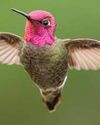
The World's Best-Known Hummingbird?
Intensively studied, the gem-like Anna’s hummingbird is a welcome visitor to the gardens of America’s most populous state: California. Bill Naylor investigates its life history
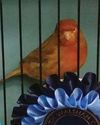
The charm of the English Cinnamon
Despite its long and complicated history, the true Cinnamon canary is still with us – in the hands of a tiny group of breeders. DONALD SKINNER-REID reckons it deserves wider appreciation
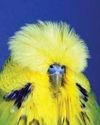
Spangles: a personal overview
FRED WRIGHT relates a budgie story of over-exploitation, consequent problems and abundant potential for the future

New converts to old breeds
Old and rare canaries have a reputation for adding fresh interest and challenge to the hobby. PETE HOOK and NICK JOY agree, and explain the birds’ charm to Dave Brown

Themed aviaries are a hit with the public at annual Stafford show
DECORATIVE AVIARY DISPLAYS from a CBS and an online bird keeping advice group were voted in the top three by visitors for the inaugural Stafford Aviary Competition.
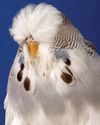
Pieds with potential
More than just a lesser variety, the dominant pied will introduce challenge and change into most studs, reckons CLIVE WAKEMAN. Here he discusses pairings to try and others to avoid

Club News
Welcome to the club and show pages – the bit that’s all about you Results: convention, specialist & rare and Breeder of the Year
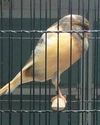
Canaries Month by Month:
With Christmas around the corner, BRIAN KEENAN is well into his winter programme, and reckons he might deserve a nice outcross
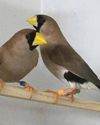
Smart Choice, Docile Nature
Dave Brown welcomes the masked grassfinch to his birdroom and shares advice on this lovely Australian species
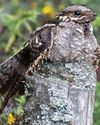
The truth about the ‘flying toad'
Odd local names and weird superstitions can’t hide the beauty and elegance of the nightjar, a species that has made a fascinating subject in a few zoo collections, reveals BILL NAYLOR